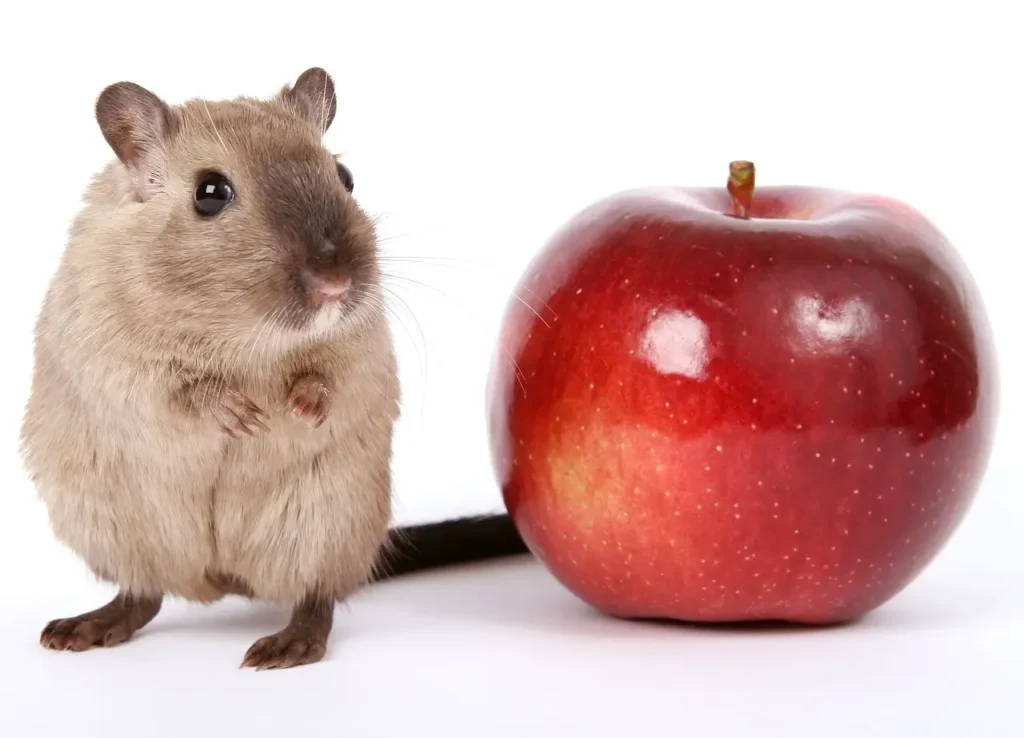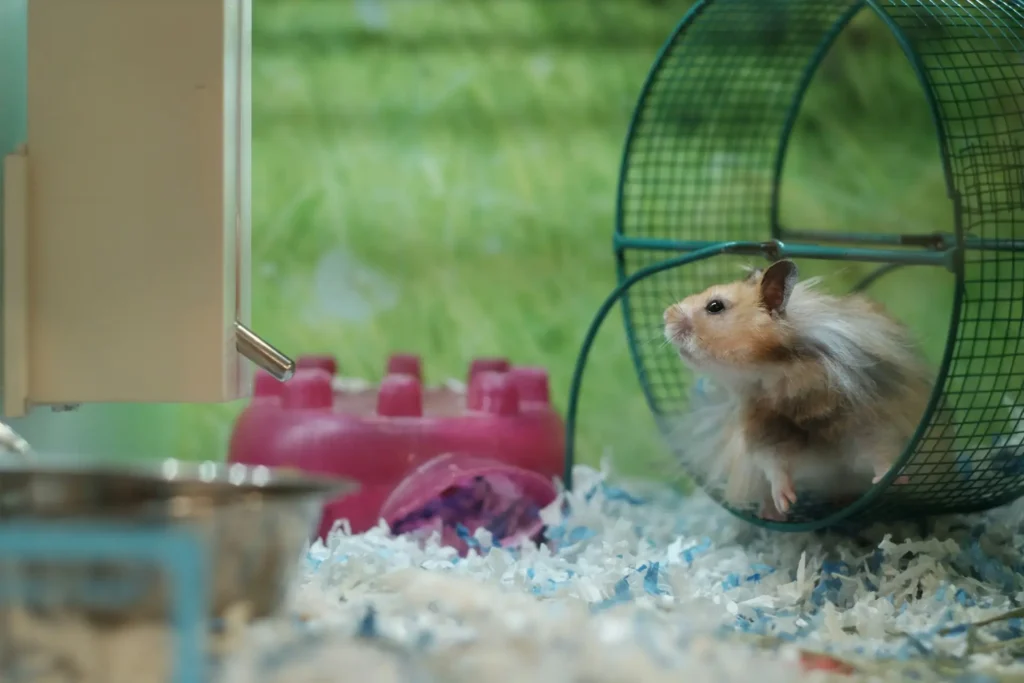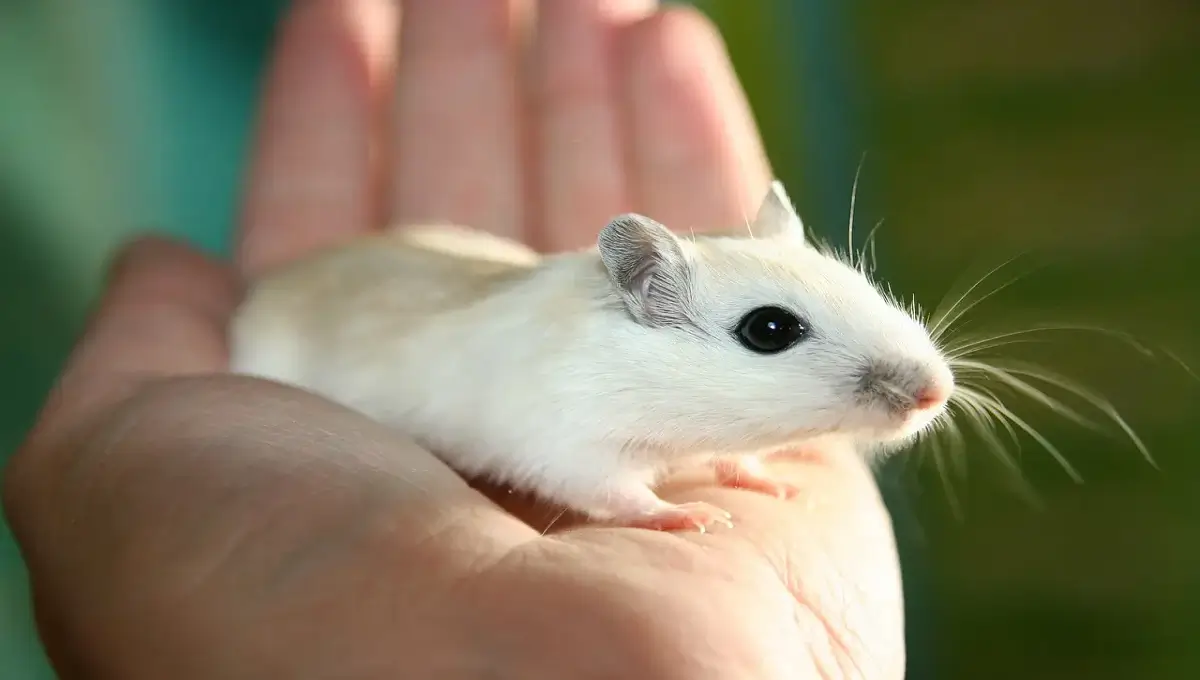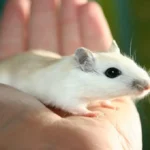Gerbils are fascinating and lively pets that bring joy and companionship to their owners. These small rodents are known for their curious nature and playful behavior, making them ideal pets for families and individuals alike.
However, like any pet, gerbils require proper care and attention to ensure they live a happy and healthy life. This guide will walk you through the essential aspects of gerbil care, from choosing your new furry friend to setting up the perfect habitat.
Choosing Your Gerbil
When it comes to adding a gerbil to your family, selecting a healthy and happy one is crucial. Gerbils are social creatures that thrive in pairs or small groups, so consider adopting two or more to prevent loneliness. Look for gerbils with bright, clear eyes, a clean and glossy coat, and an active demeanor. These signs indicate a healthy gerbil.
Adopting from shelters or reputable breeders not only gives a home to a pet in need but also ensures you’re bringing a well-cared-for gerbil into your home. Reputable sources can provide you with the gerbil’s health history and temperament, making it easier to choose the right pet for your lifestyle.
Housing Your Gerbil
Creating a comfortable and stimulating environment is vital for your gerbil’s well-being. Gerbils need space to explore, dig, and play, making a spacious aquarium or a gerbilarium ideal choices for their habitat. A 10-gallon tank is the minimum size for a pair of gerbils, but larger is always better to ensure they have ample room.
The habitat should be filled with a deep layer of bedding, such as paper-based or aspen shavings, to allow for natural burrowing behavior. Avoid cedar or pine shavings, as these can be harmful to your gerbil’s respiratory system.
Include various toys, tunnels, and chew blocks to keep your gerbil entertained and to help maintain their dental health. An exercise wheel with a solid running surface is also essential for physical activity, but ensure it’s large enough to prevent back arching.
Position the habitat in a quiet area of your home, away from direct sunlight and drafts. Gerbils are sensitive to extreme temperatures and loud noises, so a stable and peaceful environment will help them feel secure and happy.
Bedding and Nesting Materials
Choosing the right bedding is crucial for your gerbil’s comfort and health. Opt for absorbent, dust-free options that are safe for burrowing and nesting. Provide a generous layer of bedding—at least 6-8 inches deep—to satisfy their natural digging instincts.
Additionally, offer nesting materials like unscented tissue paper or hay, which they can use to create a cozy sleeping area.
Environmental Enrichment
Gerbils are intelligent and active animals that require mental stimulation to stay happy. Incorporate a variety of toys, such as wooden chew toys, tunnels, and platforms, to keep them engaged. Rotating these toys regularly can help prevent boredom. Also, consider adding a sand bath to the habitat, as gerbils enjoy rolling in sand to keep their fur clean and free of oils.
Creating a safe and enriching environment for your gerbil is not just about meeting their physical needs but also about nurturing their curious and playful nature. With the right care and attention, your gerbil will thrive and provide you with endless entertainment and companionship.
Feeding Your Gerbil: A Balanced Diet for a Healthy Life

A proper diet is fundamental to your gerbil’s health and longevity. Gerbils are omnivores, requiring a mix of grains, seeds, vegetables, and occasional animal protein to meet their nutritional needs. Understanding what to feed your gerbil, as well as foods to avoid, ensures your furry friend stays happy and healthy.
Basic Dietary Needs
The foundation of your gerbil’s diet should be a high-quality, commercially available gerbil pellet. These pellets are formulated to provide all the necessary nutrients in the right proportions. Offer fresh pellets daily to ensure your gerbil has constant access to essential nutrients.
Safe Fruits and Vegetables
In addition to pellets, you can enrich your gerbil’s diet with fresh fruits and vegetables. These not only provide essential vitamins and minerals but also add variety to their diet and help with hydration. Safe options include apples (without seeds), carrots, peas, and broccoli. To prevent upset stomach, introduce new foods gradually and in moderate amounts.
Foods to Avoid
While gerbils can eat a variety of foods, some should be avoided due to potential health risks. Toxic foods include chocolate, caffeine, onion, garlic, and any sugary or salty snacks. Also, avoid feeding lettuce as it can cause diarrhea due to its high water content.
Importance of Fresh Water
Make sure your gerbil always has access to clean, fresh water. A water bottle with a metal sipper tube is the best option, as it prevents contamination and ensures your gerbil can drink whenever it needs to. Check and refill the water daily to maintain hygiene.
Social Needs: The Importance of Companionship
Gerbils are extremely friendly creatures who thrive in the company of their peers. Keeping gerbils in pairs or small groups prevents loneliness and promotes natural behaviors such as grooming and playing, which are crucial for their mental well-being.
Keeping Gerbils in Pairs or Groups
When adopting gerbils, opt for siblings or gerbils that have already been living together to minimize aggression. Same-sex pairs or groups are recommended to prevent unwanted breeding. If you need to introduce new gerbils to each other, do so gradually and under close supervision to ensure they get along.
Health and Hygiene: Keeping Your Gerbil in Tip-Top Shape
Regular health checks and a clean living environment are essential to prevent diseases and ensure your gerbil lives a long, healthy life.
Common Health Issues and Prevention
Gerbils are generally hardy animals but can be susceptible to respiratory infections, tumors, and dental problems. Preventive measures include providing a clean, stress-free environment, a balanced diet, and regular health checks to spot any signs of illness early.
Spotting Signs of Illness
Be vigilant for symptoms such as lethargy, loss of appetite, unexplained weight loss, or changes in behavior, as these can indicate health issues. Early detection and treatment by a veterinarian specializing in small animals are crucial.
Cleaning and Maintenance of the Habitat
Maintain a clean habitat by removing soiled bedding and uneaten food daily. Perform a thorough cleaning of the entire habitat every two weeks, replacing all bedding and disinfecting surfaces. This routine helps prevent the buildup of harmful bacteria and keeps your gerbil’s home odor-free.
Sand Baths and Grooming
Gerbils naturally clean themselves through sand baths, which help remove excess oil and keep their fur clean. Provide a shallow dish filled with chinchilla sand (not dust) for your gerbil to roll in a few times a week. This not only aids in hygiene but also offers a fun activity for your gerbil.
By addressing the dietary, social, and health needs of your gerbil, you create a foundation for a fulfilling life together. Stay attentive to your gerbil’s behavior and physical condition, and don’t hesitate to consult a veterinarian with any concerns. With proper care, your gerbil will be a joyful and energetic companion for years to come.
Bonding with Your Gerbil: Building Trust and Friendship
Forming a bond with your gerbil is a rewarding experience that enhances the joy of pet ownership. Gerbils, with their curious and sociable nature, can develop strong connections with their human caregivers. Here’s how to nurture that relationship through gentle handling and interactive play.
Tips for Handling Gerbils
Gerbils may be skittish at first, requiring patience and gentle handling to build trust. Start by letting your gerbil become accustomed to your presence. Spend time near their habitat, talking softly to help them recognize your voice. When introducing your hand into their space, move slowly and avoid sudden movements to prevent startling them.
To pick up your gerbil, scoop them gently with both hands, supporting their entire body. Never pick a gerbil up by the tail, as this can cause injury. Initially, keep handling sessions short and sweet, gradually increasing the duration as your gerbil becomes more comfortable with you.
Building Trust Through Play
Interactive play is a fantastic way to bond with your gerbil. Use toys that encourage your gerbil to engage with you, such as tunnels that you can guide them through or small balls they can chase. Treats can also be a great incentive for interaction; try offering healthy snacks from your hand to encourage them to approach you.
Exercise and Play: Keeping Your Gerbil Active and Happy

Gerbils are energetic creatures that require daily exercise to maintain their physical and mental health. An engaging and dynamic environment is key to keeping your gerbil stimulated and content.
Importance of Exercise
A well-exercised gerbil is a healthy gerbil. Physical activity helps prevent obesity, keeps their cardiovascular system strong, and reduces the risk of boredom and stress. Ensure your gerbil’s habitat includes an exercise wheel with a solid surface to protect their feet and tail. Additionally, provide a variety of toys and structures for climbing and exploring.
Safe and Fun Activities for Gerbils
Create a play area outside of the cage where your gerbil can explore under your supervision. Use cardboard boxes, tubes, and safe household items to construct an obstacle course. Always supervise your gerbil during playtime to ensure they don’t escape or chew on dangerous objects.
FAQs
Do Gerbils Need a Companion?
Yes, gerbils are social creatures that prefer the company of their kind. Keeping them in same-sex pairs or groups prevents loneliness and promotes healthy social behavior. Solo gerbils may become depressed or anxious, so it’s best to have at least two for their emotional well-being.
How Often Should I Clean My Gerbils Cage?
You should clean your gerbil’s cage daily to remove soiled bedding and uneaten food. A thorough cleaning, including replacing all bedding and disinfecting the cage, should be done every two weeks. This routine helps prevent odors and maintains a healthy environment for your gerbil.
What Should I Do If My Gerbil Looks Sick?
If your gerbil shows signs of illness, such as lethargy, appetite loss, or unusual behavior, seek veterinary care immediately. Early detection and treatment by a vet experienced with small animals are crucial for your gerbil’s health. Regular health checks can help catch issues before they become serious.
Can Gerbils Be Trained?
Gerbils can be trained to perform simple tasks and tricks, especially with the motivation of treats. Training not only provides mental stimulation but also strengthens the bond between you and your gerbil. Start with basic commands and be patient, as consistent, positive reinforcement works best.
Conclusion
In conclusion, caring for a gerbil involves more than just providing food and shelter; it’s about creating a nurturing environment that caters to their physical, social, and mental needs. From selecting the right companion and setting up a stimulating habitat to ensuring a balanced diet and engaging in regular play, every aspect of gerbil care is crucial for their well-being.
Remember, the key to a happy and healthy gerbil is patience, understanding, and consistent care. By following the guidelines outlined in this comprehensive guide, you’ll not only meet the essential needs of your gerbil but also enjoy the rewarding experience of gerbil ownership.











